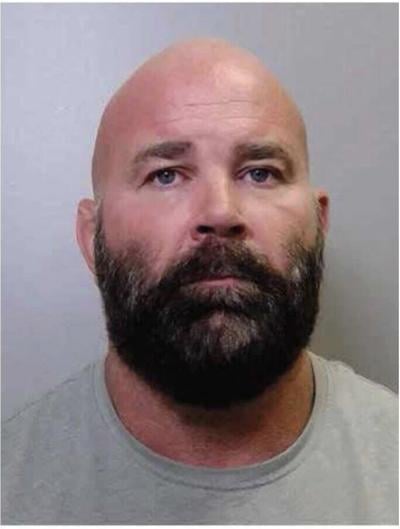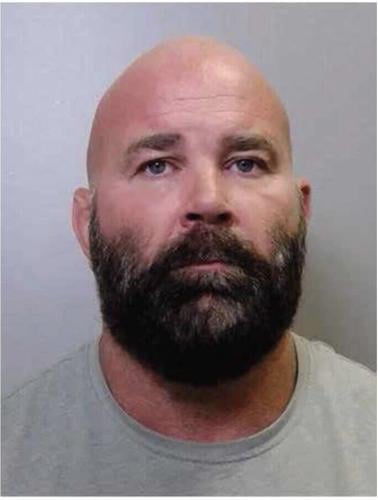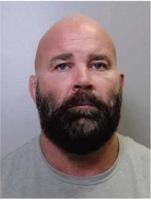Craig (Truck) McIlquham of Oakville thrived as a member of the Hells Angels as the organization moved from loud acts of public violence to quiet, online money-making.
McIlquham, 55, and fellow outlaw bikers learned that thereās plenty of money to be made if youāre relatively low-key, skilled on the computer, and feared.Ā
McIlquham ā who was also known as Craig Brown, according to Halton Regional Police ā got his nickname, āTruck,ā because of his formidable size, just short of 300 pounds. He was shot to death at 8:30 p.m. on Tuesday, April 29, while leaving a Mandarin family-style restaurant in Burlington, about a five-minute drive from the Queen Elizabeth Way. His killing remains unsolved, but police say it was targeted.
Investigators have appealed to the public for anyone with dashcam footage of Fairview and Brant Streets between the hours of 4 and 10 p.m. on April 29. They are particularly interested, they say, in a late model, dark Honda Civic with tinted windows.
McIlquhamās killer is either very lucky or very experienced, Larry Tronstad, a retired organized crime specialist with the RCMP, said in an interview, noting that the killerās drive out of the narrow parking lot could have been challenging, especially if someone had accidentally blocked his way.
āItās brazen, brazen,ā Tronstad said.
McIlquham, a father of three, had just dined with his wife and family.
Police have given few details of his shooting and no explanation has been offered to explain how McIlquhamās killer knew he would be at the restaurant.
Certainly, no clues come from his fellow Hells Angels, who have been notably low-key in the wake of the shooting. There were no apparent threats of retaliation and relatively few words of grief , with a notable absence of condolence messages from the Quebec arm of the Hells Angels, considered the clubās power base.
There is online love from Switzerland, Denmark and the Caribbean on a memorial site ā but so far nothing from any Canadian bikers.
There is online love from Switzerland, Denmark and the Caribbean on a memorial site ā but so far nothing from any Canadian bikers.
Back when McIlquham was starting out with the Angels decades ago, the clubās Quebec arm was locked in a loud and bloody war with the rival Rock Machine and then Bandidos clubs, a conflict that killed 160 people and injured another 300.
The battle was over drug turf and its casualties included Daniel Desrochers, an 11-year-old boy killed by flying shrapnel. That accidental death spurred the passage of tougher anti-organized crime legislation and saw the Hells Angels designated as a criminal organization.
Drugs are still an important source of revenue, but the Angels have also moved into less risky ā but sometimes more profitable ā enterprises like gambling and loansharking, experts say.
That sometimes puts them in partnerships with traditional Mafia groups, like the āNdrangheta out of Calabria, Italy.
āOnline gambling has been a venture for some āNdrangheta clans, including those in the pc28¹ŁĶųarea and that was done with (outlaw motorcycle gangs),ā Mafia expert Anna Sergi said in an email.
The rough reputation of Canadian Hells Angels has helped them expand their international reach in online gambling since the end of the biker wars, added author and academic Declan Hill Canadian Hells Angels. āThe Canadian chapters are spoken of with fear and renown as the most violent of all the biker groups,ā Hill, an associate professor in criminal justice and investigations at the University of New Haven, said in an email interview.
āThe Quebec wars created long shadows.ā
The internet has also greatly benefited Canadian Hells Angels in the 2000s, he said. āIt is a globalized world and organized crime got the message sooner than most corporations of how to work and move in a new world.ā
Before his murder, McIlquham was most notable for being charged in 2019 with being a leader in a major international, multimillion-dollar gambling and loansharking operation. That arrest came in the ill-fated Project Hobart investigation, which saw police allege a strong partnership between GTA Hells Angels and mobsters before the case fell apart over delays.
For a man with a sparse legitimate resume, McIlquham had plenty of possessions. Investigators in the 2019 Project Hobart case alleged he had a series of properties in the GTA, where he kept some of his cash in secret compartments and used trap doors to hide away gold, silver and jewelry.
The Crown also alleged in 2019 that he hid $11,000, a gun and a cellphone in a trap compartment in one of his vehicles.
McIlquham, who once ran a cheque-cashing service, spent much of his time lately in the Caribbean, where police said the Hells Angels had a hand in at least four illegal gambling websites; at the time of his murder, Revenue Canada was seeking $2 million in back taxes from 2014 to 2018.
Thatās a far step up from McIlquhamās early days as a bodyguard for Walter (Nurget) Stadnick of Hamilton, once widely considered Canadaās top Hells Angel. In September 2004, Stadnick was convicted in Montreal on a variety of organized crime offences, including conspiracy to commit murder, conspiracy to traffic drugs and involvement in gang activities. He was sentenced to 20 years in prison, reduced to about 14 for time served.
The rise of online gambling
For a time in the early 2000s, GTA Hells Angels attempted to tackle the gangās rough image as a manageable public relations challenge.
They offered a rare public apology in 2004 when one of their members was arrested after taking part in an attempted underworld hit at a California Sandwiches shop in North York that left bystander Louise Russo paralyzed from the waist down. Court later heard that North pc28¹ŁĶųHells Angel Paris Christoforou and underworld enforcer Antonio (Jelly) Borrelli were shooting at mobster Michele Modica, who was suspected of attempting to skip the country while owing $240,000 in gambling debt to an online gambling site based in Costa Rica, with Hells Angels and mob ties.
While the siteās web server was offshore, its muscle is in the GTA and southern Ontario through its biker and mob connections, police said. āWhat makes it local is how you collect the money,ā Acting Supt. Keith Finn of the RCMP said. āYou need to be able to back up the threats.ā
Christoforouās arrest pushed the local Hells Angels to a rare public apology, saying the club āextends our heartfelt sympathyā to Russo and her family. (Christoforou was kicked out of the club and stripped of his gambling enterprise while he was sent to prison.)
Meanwhile, the clubās public relations offensive continued into fall 2004 with a billboard next to the Don Valley Parkway noting that the original members of the Hells Angels were servicemen returning from the Second World War ā āStill fighting for democracy and freedom,ā it read.
The public relations blitz quickly fizzled, as the bikers focused on low-risk, high-reward crimes like gambling and loansharking.
Project Hobart ā the investigation that nabbed McIlquham in 2019 ā accused the Hells Angels of taking part in an international gambling ring with members of the GTA āNdrangheta. Police touted 28 arrests and the disruption of an $131-million illegal gambling network linked to the Figliomeni crime family. McIlquhamās charges included possession of a restricted weapon, bookmaking and the commission of an offence for a criminal organization.
Another target of Project Hobart was Niagara Hells Angel Michael (Diaz) Deabaitua-Schulde, a reputed debt collector who was murdered in broad daylight on March 11, 2019, after leaving a Mississauga gym.
In making the arrests, the OPP announced they had seized more than $12 million in assets, including sports cars, two golf carts, seven residences, nine illegal handguns, jewelry valued at approximately $300,000, $330,000 in precious metals, $1.2 million in financial accounts and about $1.7 million in cash.
Police announced Project Hobart in December 2019 with 28 arrests and claims of disrupting of a $131-million illegal gambling network with links to
Police announced Project Hobart in December 2019 with 28 arrests and claims of disrupting of a $131-million illegal gambling network with links to
Gamblers were allowed credit limits as high as $20,000, but they were also expected to settle debts within a week, police said.
But the complex case was eventually thrown out of court after prosecutors took too long to bring it to trial amid the COVID-19 pandemic.
The years since Project Hobart
The pandemic didnāt dry up the gambling partnerships or sever links between GTA Hells Angels and local mobsters, even though their favourite cafes, restaurants and gyms were closed and travel restrictions meant they couldnāt jet off to Italy or Mexico ā or even Montreal or New York ā to make deals.
Some GTA gamblers took advantage of the shutdown of government-run casinos during the pandemic to set up illegal luxury gambling spots of their own.
That included a Markham casino on Decourcy Court near Warden Avenue and Major MacKenzie Drive that was busted in the fall of 2020. It served forbidden delicacies like braised shark fins served by waiters in tuxedos, police said.
It was a āhigh-end operation for high-end clientele,ā Det. Sgt. Ahmad Salhia of the York Regional Police organized crime bureau said.
The 53-room, cut-stone mansion was surrounded by a high, electronically-controlled metal fence and patrolled by armed guards with large German shepherd dogs.
Supt. Mike Slack of York Regional Police then said illegal gambling spots had also prospered after the province shut down legal casinos over COVID-19 fears.
āIt opened up an opportunity for these more extravagant locations,ā Slack said.
It didnāt hurt police that two of the guards outside the casino were playfighting when they were supposed to be watching for police or attackers from rival gambling organizations or street gangs.
After the Project Hobart case fizzled, McIlquham quietly moved to the Caribbean and closer to the clubās web servers.
Itās not clear when he returned to Canada but, clearly, he told one person too many of his return and his dinner plans on April 29.
One of the few people to give a tribute on his memorial page identified himself only as āJohn HAMC Caribbean,ā for John, Hells Angels Motorcycle Club.
āBrother, you are going to be a great loss in this world,ā John HAMC Caribbean wrote. āWe had a lot of laughter and fun. Going to miss you terribly. Strength to family and friends.ā





























To join the conversation set a first and last name in your user profile.
Sign in or register for free to join the Conversation